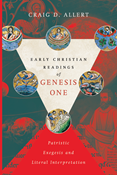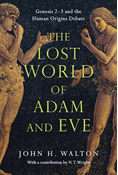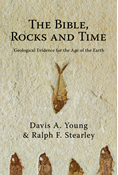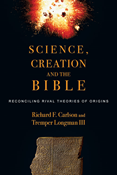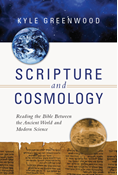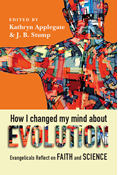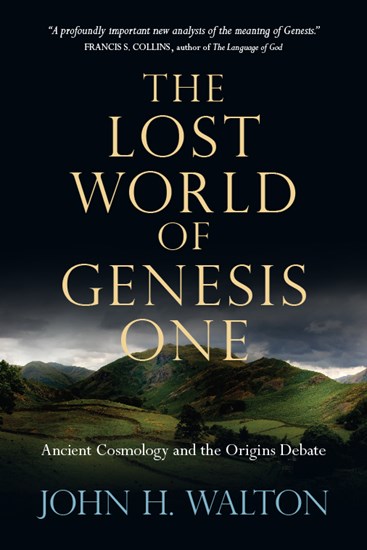
|
The Lost World of Genesis One
ebook
|
- Length: 192 pages
- Dimensions: 0 × 0 in
- Published: July 21, 2010
- Imprint: IVP Academic
- Item Code: 6149
- ISBN: 9780830861491
-
Other Retailers:
Amazon*
*affiliate partner
-
paperback
In this astute mix of cultural critique and biblical studies, John H. Walton presents and defends twenty propositions supporting a literary and theological understanding of Genesis 1 within the context of the ancient Near Eastern world and unpacks its implications for our modern scientific understanding of origins.
Ideal for students, professors, pastors and lay readers with an interest in the intelligent design controversy and creation-evolution debates, Walton's thoughtful analysis unpacks seldom appreciated aspects of the biblical text and sets Bible-believing scientists free to investigate the question of origins.
The books in the Lost World Series follow the pattern set by Bible scholar John H. Walton, bringing a fresh, close reading of the Hebrew text and knowledge of ancient Near Eastern literature to an accessible discussion of the biblical topic at hand using a series of logic-based propositions.
"John Walton's expertise in the Ancient Near Eastern sources enables him to shed a flood of new and unexpected light on the deeper meaning of Genesis 1. The Creator, Genesis is saying, designed heaven and earth as a great temple with the intention of coming to live in it himself--and the sabbath isn't just a nice break after the work is done, but the moment when he takes up residence in the world he has just made. The implications of this resonate right through the rest of the Bible. This is not just a book to invite 'creationists' to think differently; it is a book to help all Bible students read the whole of Scripture with fresh eyes."
"Professor Walton seeks to describe clearly and with ruthless honesty the nature and purpose of the biblical text in Genesis that is juxtaposed to the claims of modern science and scientism in the current debate over origins. His work will be welcomed by all those who seek to render to both the Scriptures and modern science the authority appropriate to each--while at the same time avoiding false or unnecessary stands on either side."
"John Walton offers a compelling and persuasive interpretation of Genesis, one that challenges those who take it as an account of material origins. His excellent book is must-reading for all who are interested in the origins debate."
"Every theologian, every pastor, every Christian in the natural sciences, indeed, every Christian who loves the Bible must put aside all other reading material this minute and immediately begin to absorb the contents of John Walton's The Lost World of Genesis One. Walton closely examines Genesis 1 in light of ancient Near Eastern literature and offers a compelling case that the creation account is far more concerned with the cosmos being given its functions as God's temple than it is with the manufacture of the material structures of the earth and universe. In the process, he has blown away all the futile attempts to elicit modern science from the first chapter of the Bible."
"Walton's cosmic temple inauguration view of Genesis 1 is a landmark study in the interpretation of that controversial chapter. On the basis of ancient Near Eastern literatures, a rigorous study of the Hebrew word bara' ('create'), and a cogent and sustained argument, Walton has gifted the church with a fresh interpretation of Genesis 1. His view that the seven days refers to the inauguration of the cosmos as a functioning temple where God takes up his residence as his headquarters from which he runs the world merits reflection by all who love the God of Abraham."
"This book presents a profoundly important new analysis of the meaning of Genesis. Digging deeply into the original Hebrew language and the culture of the people of Israel in Old Testament times, respected scholar John Walton argues convincingly that Genesis was intended to describe the creation of the functions of the cosmos, not its material nature. In the process, he elevates Scripture to a new level of respectful understanding, and eliminates any conflict between scientific and scriptural descriptions of origins."
"Walton [brings] a fresh perspective that enlightens, enriches, and honors the biblical text. . . I recommend the book to anyone interested in the origins question and look forward to seeing how these ideas shape origins discussion of the future."
"It will challenge many to think about Genesis in the way Christian scholars have been championing for many years now---as an ancient document, speaking to people with an understanding of the world very different from our own. Hopefully, it will open the doors to a conversation that is long overdue."
"An interesting read. Well worth putting in church libraries."
CONTENTS
Prologue
Introduction
Proposition 1: Genesis One Is Ancient Cosmology
Proposition 2: Ancient Cosmology Is Function Oriented
Proposition 3: "Create" (Hebrew bara') Concerns Functions
Proposition 4: The Beginning State in Genesis One is Non-Functional
Proposition 5: Days One Through Three in Genesis 1 Establish Functions
Proposition 6: Days Four Through Six in Genesis 1 Install Functionaries
Proposition 7: Divine Rest Is In a Temple
Proposition 8: The Cosmos Is a Temple
Proposition 9: The Seven Days of Genesis 1 Relate to the Cosmic Temple Inauguration
Proposition 10: The Seven Days of Genesis 1 Do Not Concern Material Origins
Proposition 11: "Functional Cosmic Temple" Offers Face-Value Exegesis
Proposition 12: Other Theories of Genesis 1 Either Go Too Far or Not Far Enough
Proposition 13: The Difference Between Origin Accounts in Science and Scripture is Metaphysical in Nature
Proposition 14: God's Roles as Creator and Sustainer are Less Different Than We Have Thought
Proposition 15: Current Debate About Intelligent Design Ultimately Concerns Purpose
Proposition 16: Scientifice Explanations of Origins Can Be Veiwed in Light of Purpose, and If So, Are Unobjectionable
Proposition 17: Resulting Theology in This View of Genesis 1 Is Stronger, Not Weaker
Proposition 18: Public Science Education Should Be Neutral Regarding Purpose
Summary and Conclusions
FAQs
Notes
Index



